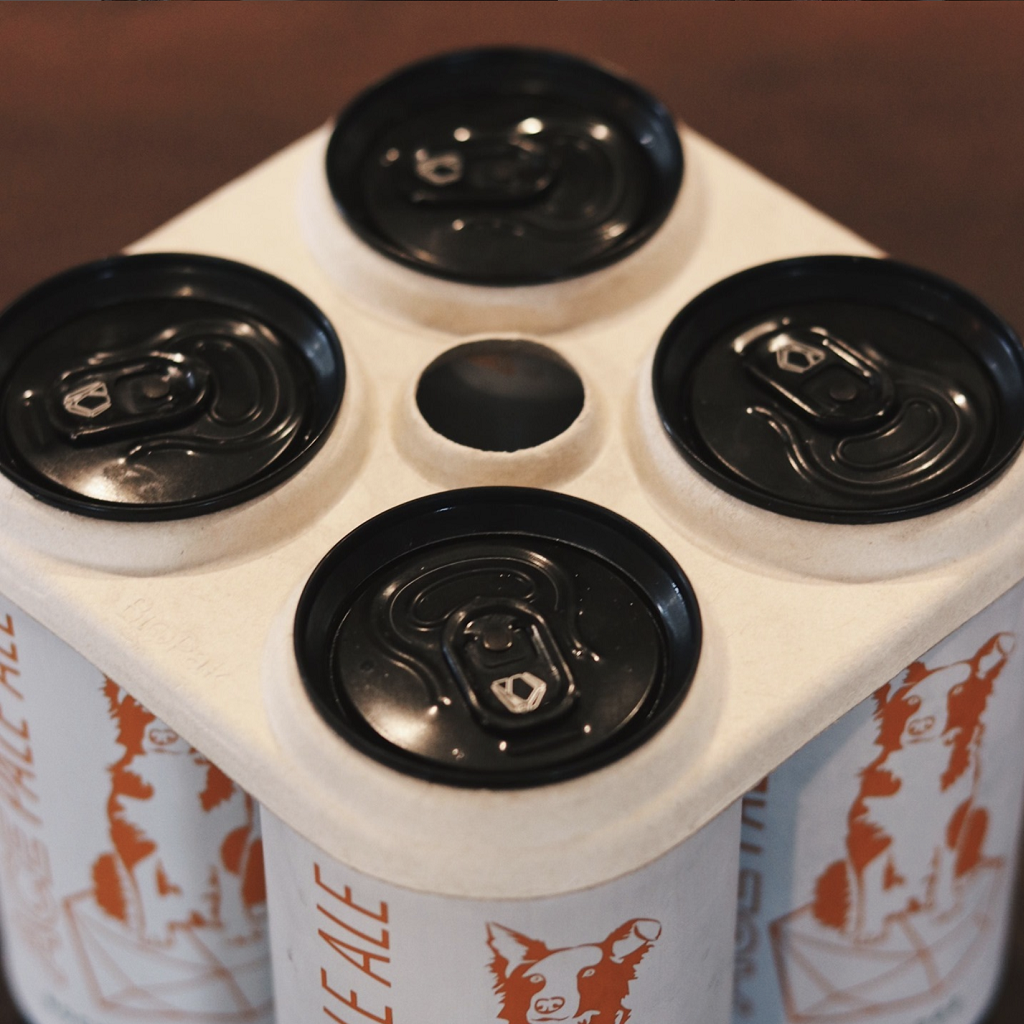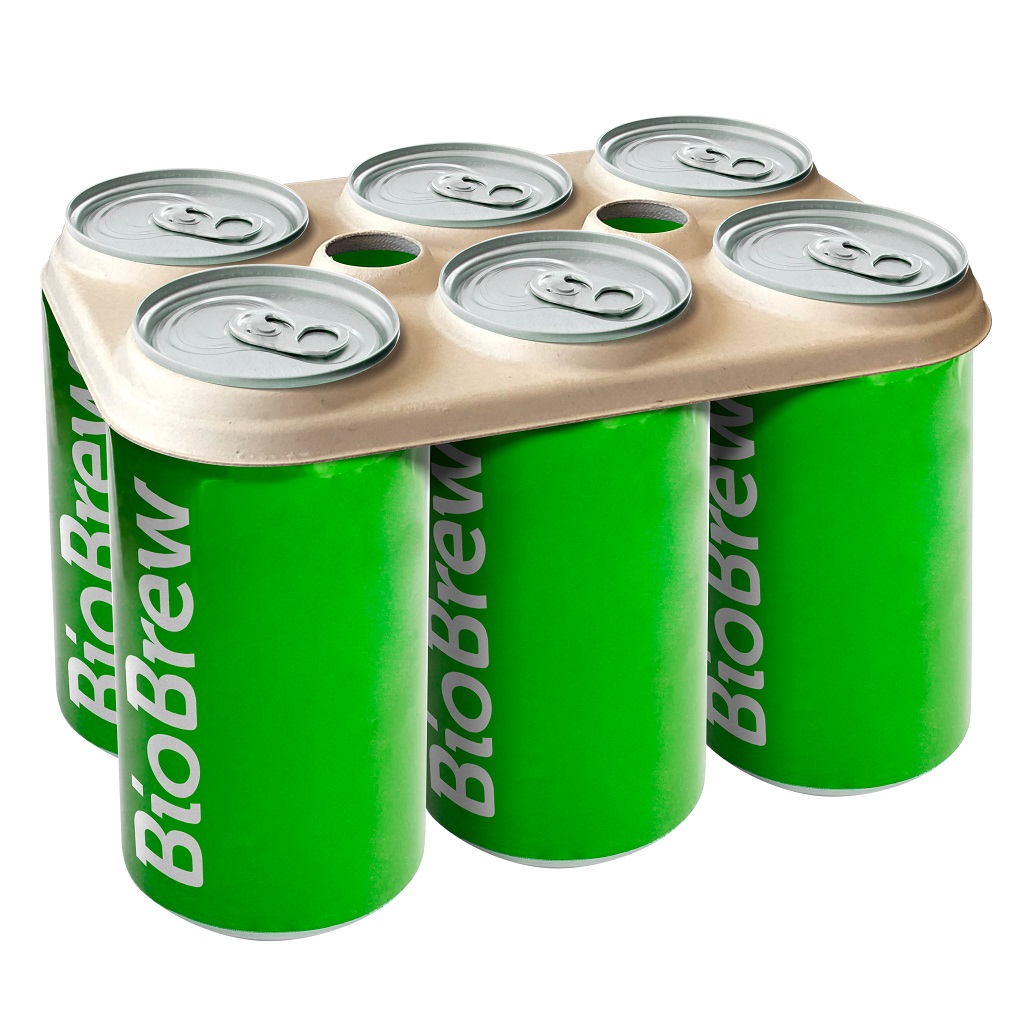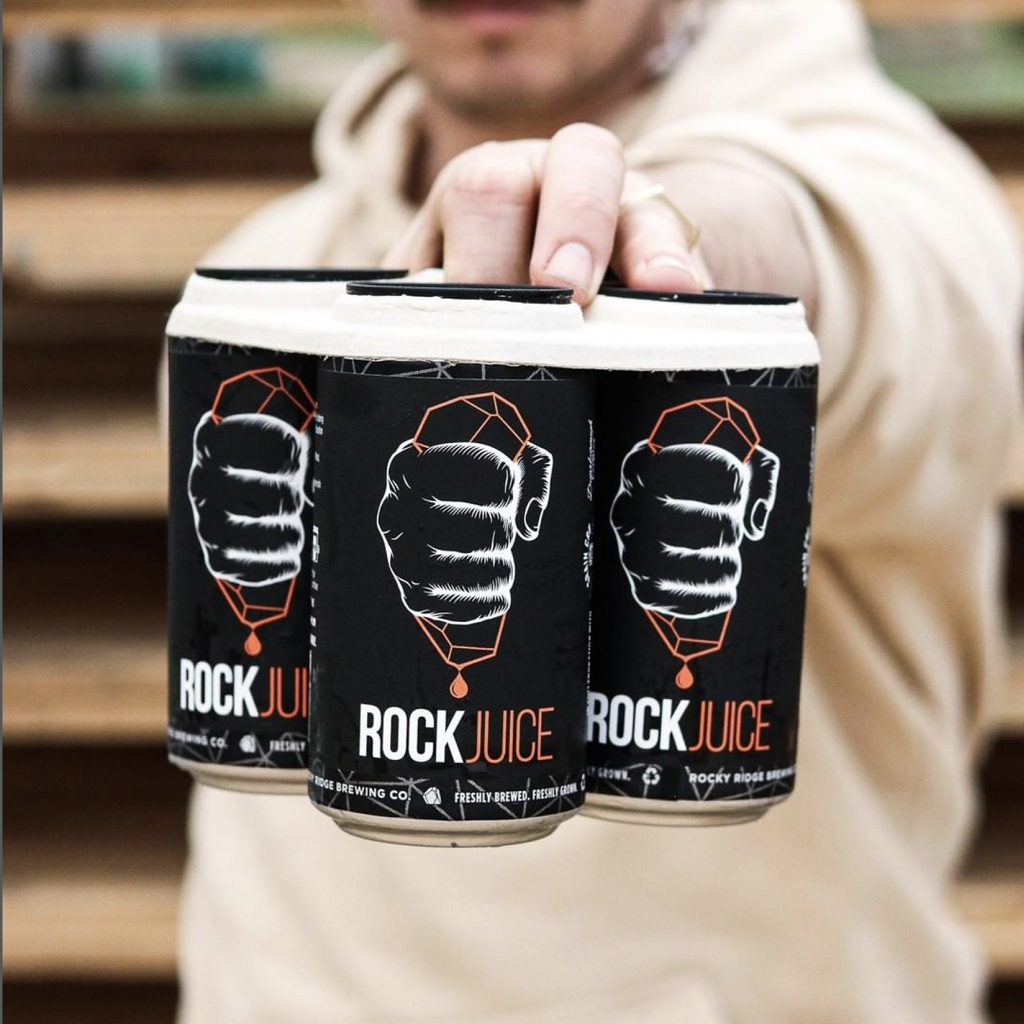
Brewers grapple with sustainable packaging
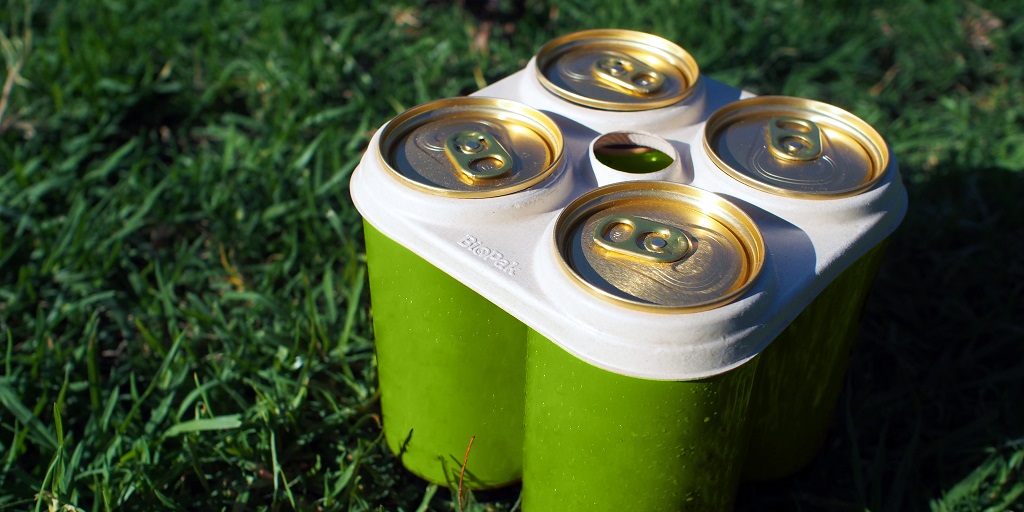
As brewers focus on sustainability, finding the best environmentally friendly option can prove challenging.
With plastic increasingly seen as a problem to be solved, many brewers have heralded their use of can handles made from sugar cane pulp from suppliers such as Biopak. In moving to more sustainable options they have had to grapple with the realities and challenges of working with such a new and evolving product.
Brouhaha publicised its move to the BioCane handles in 2020, it said that it was making the decision because, as a planet, “we have produced more plastic in the last 10 years than during the whole of the last century”.
In a U-turn recently, the brewery announced that it was working with packaging company Ecogrip to use an “environmentally-friendly” 100 per cent Australian recycled plastic can carrier to address the impact of single-use consumer goods in Australia.
“There’s a misconception that when we pick up a recycled product that we’re buying into a greener and more environmentally friendly vision, when in fact we’re unfortunately missing the full picture,” explained Brouhaha’s Matt Jancauskas.
“By bringing in recycled plastics from overseas, we’re not utilising the surplus of our own waste that we have made available to use, nor are we addressing the wastage and contribution to landfill and the flow on environmental impacts.”
Brouhaha’s media release said that Australians use 130kg of plastic per person a year. So avoiding using virgin materials such as newly-manufactured plastic and aluminium could help, especially as recycling rates increase – now standing at 18 per cent recycle rates in Australia.
However, according to some figures, six-pack plastic rings could take 400 years to degrade.
This highlights the hard choices for breweries, who have to decide between sustainability, functionality and price in this and other elements of packaging.
Moving back to plastic?
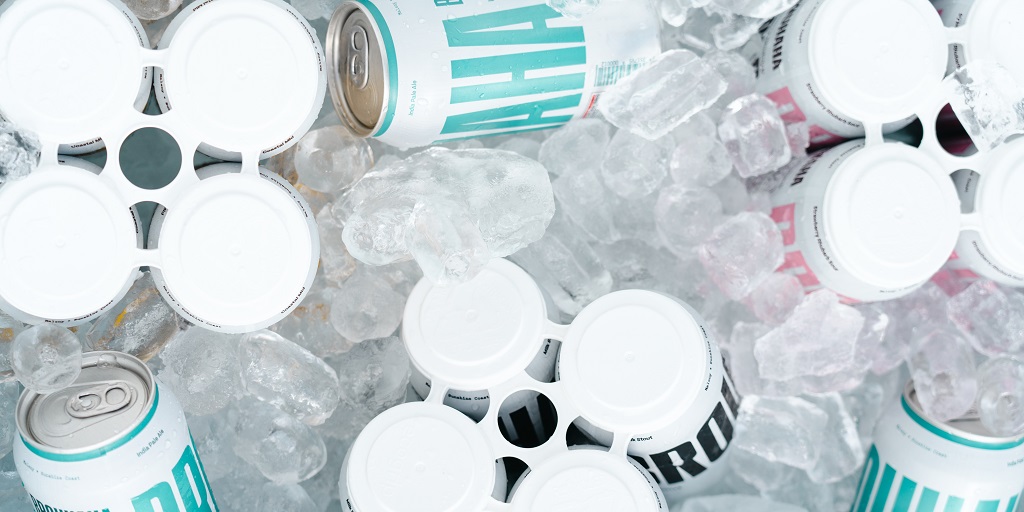
There were a number of reasons that Brouhaha made the move back to plastic, a spokesperson explained.
“There were some issues with the Biopak compostable sugarcane pulp can holders, as Brouhaha discovered that the product is still in its infancy and not practical at this point in time,” they said.
“They periodically discontinued the can holders to refine the design and were inconsistent in terms of quality, thickness, and shape. This led to issues with application and durability.
“While Brouhaha believe this is an awesome product concept, at its current state, it is far from practical in the field.
“When Brouhaha found out about Ecogrip, they saw it as a way to rectify the issues that we were having with Biopack and continue to contribute to the reduction of single use and non-recyclable plastic in Australia.”
Burnley Brewing also tried out the BioCane packs for a limited edition beer release, but had to balance its practical needs with bringing in sustainable options.
“One of our goals is to become as environmentally friendly as possible,” explained Burnley co-founder Chloe Hoiberg.
“We explored that and used the cardboard ones as it made sense on paper to be more environmentally friendly, but when we were packing it, you needed an additional set of hands and, while our packing team can go for a long time without feeling pain, the cardboard had them in pain, and it was noticeably slower. When we updated the canning line they just weren’t a good fit.”
Burnley also has around a 90 per cent return rate for plastic clips in the taproom and brewery, although wholesale is inevitably a different problem. Others in the industry have identified this and are attempting to mitigate the issue with recycling schemes such as Endeavour Group and the Independent Brewers Association’s Paktech recycling initiative.
“Beer is hard, because [packaging] has to be slightly more robust than you’re assuming and it has to be temperature solid. Nothing that will go soft when it’s warm or humid or anything like that,” Hoiberg explained.
“But that’s the uncomfortable thing, it has to be so practical and unfortunately being a small business we can’t financially gamble on something that doesn’t work.
“I would try everything under the sun if I could, but we contract brew as well and can’t have a lesser product going out there under ours and other people’s names, but we’re always down to try something.”
However, while compostable can clips might not be for everyone, one brewer who has made the move to BioCane and stuck with it is Rocky Ridge Brewing Co. in WA.
“For us, we made the switch because it’s the right thing to do, and while there wasn’t huge pressure from our customers, we are actively removing plastic from our supply chain at every possible step. We firmly believe that reducing plastic waste to landfill is the responsibility of all manufacturers,” according to Hamish Coates at Rocky Ridge.
Rocky Ridge uses around 750,000 4-pack can handles a year, he said.
“We love the idea behind these four packs, they fit with our sustainability brand and ethos perfectly. We can’t wait to see widespread adoption of these and hope to see them being used across Australia and the world.”
Hear more from Rocky Ridge Brewing Co. and its sustainability journey on the Beer is a Conversation podcast.
BioPak and sustainable packaging
According to Biopak, it supplies 150,000 of the BioCane can handles every month, and Gary Smith, CEO of Biopak, told Brews News that he was willing to work on any solution required to encourage the use of more sustainable options.
“We have work to do around the packing, such as further development with branding or barcode.
“We’re developing solutions, we have industrial designers focused on innovation, we want to show the market we can produce products for where fossil fuel products previously existed, but we need commitment from the market as well.
“We will spend what we need to for a solution, to get it at 100 per cent. We are prepared to invest and put in the talent and the money required, so we’ll make it, but we need the partners.”
BioPak has previously adapted its can holders to the needs of brewers, he explained.
“We did a number of trials, they asked for a barcode for instance, there were a couple of other things, and we made these improvements.
“I can only imagine it’s a cost thing, if it’s 5c for plastic and 10c for compostable.”
Smith also suggested that the can handles were suitable for even heavy use, in humid environments or long travel.
“They don’t break down, unless there is an element that is introduced like composting. With the temperature in composting and environment, they break down in a few weeks. There’s no break down unless that’s introduced.”
Smith said that whether recycled or new plastic is used, it is still a linear system, compared to products like BioCane can handles which are more circular.
“If we’re taking something from the earth we want it to be from raw materials that are rapidly renewable.
“[At Biopak] we’re replacing resources within months – so they are really rapidly renewable, even if you use it for five minutes then it will go back to the earth, that’s what we’re trying to promote. We could introduce recycled plastics but it goes against our values.
“With recycled plastic, the fibres get weaker, it’s not a sustainable solution. Even if you use it again a few times, that’s a linear solution, not a circular one.”
Alternative packaging pressures
Brewers also have to consider other challenges, particularly when ranging with major retailers who have stipulations around packaging to ensure safety and durability throughout transport and stocking.
Endeavour Group, owners of BWS and Dan Murphy’s, stipulates that packaging must be durable as well as safe for teams and customers – for instance if clips or wraps disintegrate they can cause cans or bottles to fall. This has previously been a criticism of sugar cane can handles and cardboard wraps.
Endeavour also requires barcodes, so any alternative packaging options would need to have a position for multipack barcodes to ensure they meet ranging requirements.
Even biodegradable and compostable plastics offer challenges, and The University of Technology Sydney actually welcomed the phasing out of biodegradable plastics in the Federal Government’s National Plastics Plan 2021.
“A major problem with “biodegradable” plastic is the lack of regulations or standards around how the term should be used,” it explained in a statement at the time.
“Many plastics labelled biodegradable are actually traditional fossil-fuel plastics that are simply degradable (as all plastic is) or even “oxo-degradable” — where chemical additives make the fossil-fuel plastic fragment into microplastics.
“The fragments are usually so small they’re invisible to the naked eye, but still exist in our landfills, water ways and soils.”
Even compostable plastics are difficult, it suggested. Although there are certification standards for compostable plastics, most certified compostable plastics are only for industrial composting, which requires extremely high temperatures.
As an alternative, Hawke’s Brewing Co, which has recently launched its first venue, uses cardboard wraps for its six and four packs and has invested in a WestRock ClusterPak system.
“Hawke’s in the beginning started with Paktechs,” explained Hawke’s head brewer Brodie French.
“But as soon as the volume increased in the early days they adopted the cluster wraps.”
While sustainability might have been a driving force, especially considering the brewery’s partnership with Landcare, Hawke’s looked at the economics of packaging too.
“It’s quite an investment to have that machine in our facility, so we did our due diligence in terms of how much does this add to a carton, and what’s the pay off in the end. That was all done in the initial days, it all came back to how recyclable are the materials we’re using, and using paper over plastic. That on its own was enough for us to continue to use cardboard, which is fully recyclable and made from recyclable materials,” French said.
“The whole transport bit with packaging, it’s a bit like cans and glass, and cans are a lot lighter product which is the same as wrap versus a Paktech. There are 24,000 wraps on one pallet, that’s a lot of tinnies. If I tried to do the same with Paktechs, it would be a few pallets.
In addition, the ClusterPak system is six times faster than what Hawke’s canning line can produce, but there are issues that might prohibit its use in other breweries.
“It’s expensive and huge, it’s about 1.5m wide and 5m long, so if you don’t have the space for it you just can’t fit it in. That’s why smaller guys go to the Biopak holders, but there’s some integrity issues and they have gone down that path because that’s definitely sustainable.”
But it has increased functionality in other areas, including interchangeability between four-packs and six-packs, and that they are folded without any gluing. Can ‘lockers’ ensure the cans stay secured in place.
“You can shake it, basically drop the thing and they won’t come out which is another benefit considering we don’t have to glue these things,” explained French.
At the end of the day, it’s about choosing the sustainable options that are best for your business.
“These things are challenging but you have to take them on. We’re working in an energy-intensive industry as it is, and everyone has to do the best that they can for the environment.”

